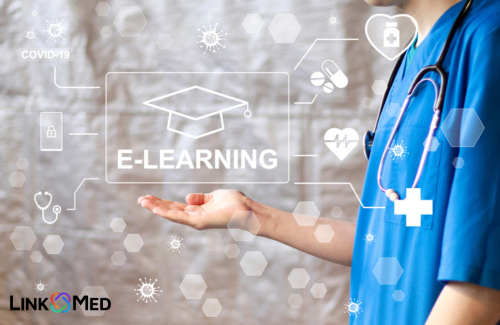The Future of Healthcare Collaboration: Trends and Technologies to Watch

The medical world keeps rolling at a fast pace, and one of the strong drivers in changing this world is emphasis on healthcare professional collaboration platform. Innovative trends, especially technology-driven, are going to shape how healthcare professionals work with one another. The future of healthcare collaboration will be reliant on innovations that foster much smoother interactions in a secure HIPAA environment and provide new ways of mentoring and educating the health professional.
1. Advanced HIPAA Compliant Collaboration Tools with AI
Data security remains the number one priority, while heavy emphasis is going toward creating smarter HIPAA compliant collaboration tools. They will be embedded with AI to improve communication by ensuring strict standards of security. Future workflow platforms can use AI in the automatic analysis of patient data for flagging issues to healthcare professionals and recommending further action. Machine learning algorithms will provide predictions about patient responses based on their history, more accurate decisions regarding teamwork based on collaboration.
Next-generation HIPAA tooling will provide the key layer of data protection while enabling more functionality into these platforms, including AI-driven chatbots that can answer general questions, schedule appointments, allowing healthcare professionals to focus on direct patient care. At the heart of healthcare collaboration, the combination of data protection with enhanced functionality will be enabled by the next generation of HIPAA-compliant tools.
2. Virtual Reality (VR) and Augmented Reality (AR) for healthcare professional mentorship
Healthcare professional mentorship is taking new dimensions as VR and AR enable remote, hands-on learning experiences. The mentors will be able to use VR to walk the mentee through the complex procedure in a simulated environment where practice can be done for any patient risk. AR might superimpose digital instructions onto real-world images while aiding in live surgeries or other procedures with mentors while keeping an eye on work remotely.
These immersive technologies will make training, in particular for remote and under-resourced areas, far more accessible and offer real-life hands-on learning in real time. As the tools continue to improve and become more affordable, we will see new frontiers of interactive mentorship unconstrained by geographical boundaries.
3. AI-Powered Online Medical Webinars
Online medical webinars are revolutionizing the concept of continuing education through which professionals can now learn from experts all over the world. In the future, these webinars will be even more interactive and personalized due to AI. AI algorithms can personalize webinar content to a participant’s past viewing history, role, or specialty for more relevant learning experiences.
Advanced webinars might also use Artificial Intelligence to simulate real-time patient case studies in which participants can interactively discuss and take decisions that could be made during the webinar. AI-driven quizzes, polls, and breakout discussions provide an interactive learning environment with real-time feedback for healthcare collaboration and continuous education.
4. Blockchain for Secure Data
As healthcare collaboration increasingly depends on data-sharing across institutions, blockchain technology offers a promising solution for secure and transparent data exchange. Blockchain is decentralized in nature and can thus offer a tamper-proof mechanism that ensures integrity and security of the data in managing patient records in HIPAA-compliant ways.
Blockchain enables health professionals in collaborative environments to access validated patient data without risking unauthorized changes. This form of secure data sharing is going to become increasingly important for healthcare professional collaboration as it expands to include multiple specialties and organizations that provide real-time, accurate information to all relevant stakeholders.
5. Digital Twins for Simulated Collaboration
The most futuristic technologies in the works that are redefining healthcare are the concept of digital twins. Virtual models of physical systems that allow testing and predictions through simulations. In health, a digital twin might represent a patient’s organs or body system and can be shared by multiple health professionals for procedure simulation, therapy, or disease progression. Both digital modeling now can offer the possibility for healthcare professional collaboration to test the interventions before their actual implementation in reality.
This opens possibilities for very precise, evidence-based minimally invasive collaboration of healthcare professionals. Such simulations could also support areas like mentorship programs in health by allowing the mentors to take newer practitioners through scenarios in a controlled environment, this would enhance learning with minimal risks.
